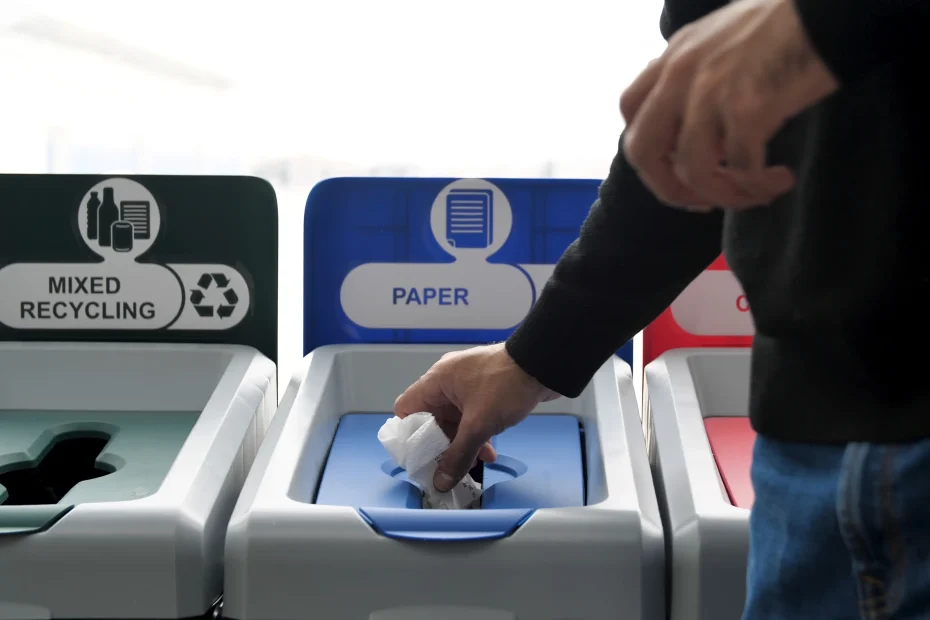Smart cities rely on innovative technology to solve modern day urban challenges and waste management is no exception. One of the most transformative advancements in this area is the Smart IoT garbage monitoring and management system. By integrating Internet of Things (IoT) technologies into garbage bins and city wide waste tracking systems, municipalities are finding smarter, cleaner, and more efficient ways to manage their growing urban populations.
What Is a Smart Garbage Monitoring System?
A smart garbage monitoring system is an IoT powered waste management solution that integrates sensors into garbage bins to track their fill levels, temperature, and overall usage. These sensors relay data to a central platform, enabling waste management teams to make data-driven decisions on when and where to collect waste.
The system also helps eliminate unnecessary trips by garbage trucks, thereby saving fuel, reducing traffic congestion, and cutting carbon emissions. It’s an intelligent way to manage urban cleanliness while minimizing environmental impact.
Key Benefits of Smart Garbage Monitoring in Urban Areas
Improved Waste Collection Efficiency
With traditional waste systems, collection schedules are fixed and often inefficient, resulting in half full bins being emptied or overflowing bins being ignored. Smart IoT garbage monitoring and management systems solve this by enabling on demand pickups based on actual bin status, thereby saving fuel, time, and resources.
Cost Reduction and Resource Optimization
By using real time data, municipalities and private companies can significantly cut operational costs.Reduced trips lead to less fuel usage, lower vehicle wear and tear, and better use of workforce efficiency. This leads to long term cost savings and better service quality.
Enhanced Cleanliness and Hygiene
Improper waste disposal can lead to odor issues, pest problems, and public health concerns. With a smart garbage monitoring system, alerts are generated before bins reach critical levels, helping to maintain clean streets and healthier urban environments.
Real Time Data and Analytics
Smart systems provide access to valuable analytics, helping authorities identify waste trends, peak disposal times, and high waste areas. These insights support better planning, smarter budgeting, and faster response times during waste surges or events.
Environmental Sustainability
Smart garbage bins help the environment by saving fuel, lowering pollution, and making recycling easier. Some systems even separate recyclables using sensors, contributing to a circular economy model.
Smart Technology for Smart Cities
As cities aim to become smarter and more sustainable, waste management is a crucial area of transformation. Integrating smart IoT garbage monitoring and management systems into city infrastructure not only improves operational efficiency but also aligns with global sustainability goals such as the UN’s Sustainable Development Goals (SDGs).
Smart bins can also be integrated with other smart city systems such as traffic monitoring, energy use, and public health dashboards for a unified and holistic urban management approach.
Challenges and Considerations
While the benefits are substantial, implementing smart garbage monitoring systems requires upfront investment in hardware, software, and training. Connectivity and data security are other factors to consider. The beginning might be expensive, but later it brings big savings, less pollution, and smoother waste handling.
Why Smart Garbage Systems Are Useful
Better Collection
Smart waste technology reduces trips by targeting only full bins, helping save fuel, ease traffic, and protect the environment.
Cleaner Environment
Emptying full bins on time stops bad smells, insects, and other health risks. This helps keep cities clean and safe.
Useful Data for Planning
The system shows which areas make the most garbage. This helps city planners build better waste solutions and recycling programs.
Supports Green Living
The smart IOT garbage monitoring and management system lowers carbon emissions and helps reduce waste. This is good for the planet.
Saves Money
Cities can cut costs by using fewer trucks and planning better routes. The system also reduces the need for emergency cleanups.
Helping Smart Cities Grow
Smart garbage systems are a big part of smart cities. They work well with other digital tools like traffic lights, water systems, and public safety alerts. Together, they help cities become more organized, efficient, and green.
Challenges to Keep in Mind
Even though smart garbage systems are helpful, they can be costly to set up. Training, system upgrades, and support are also needed. But with the right support from the government and local companies, these problems can be solved.
Smart garbage bins and monitoring tools are helping cities become cleaner, safer, and smarter. The smart garbage monitoring system is not just about managing trash it’s about improving the way cities work.
Contact us today to implement a smart garbage monitoring system and move toward a cleaner, smarter future!



